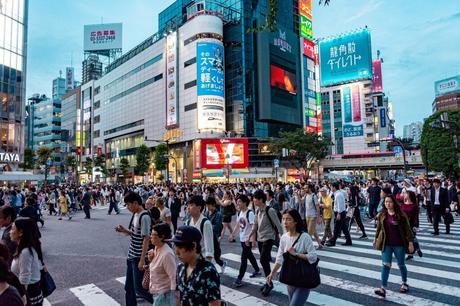
Japan is a stunning nation that is best recognized for being the world's most populous country. Japan is, in fact, the destination of many people's dreams. Many individuals have various motives for wanting to visit Japan, but the most popular reason would be because of the natural beauty, which would include lush mountains, endless lakes and spectacular cherry blossoms. There are many other cultural events that take place here, and people from all around the world come to participate in them. There are numerous UNESCO-designated historical sites throughout the country that attract visitors from all over the world.
Before you go somewhere new, there are a few things to think about. Although the prospect of visiting a new place is thrilling, there are several things to consider before doing so. Many countries have rules and requirements that must be complied with, so do your homework before going out.
Before traveling to Japan, there are a few things you should keep in mind.
We've put up a list of some of the most useful Japan travel ideas to make your stay more pleasurable and extraordinary:
1. Japan is basically a cash-based society
Although you would assume that most businesses, especially restaurants, accept credit cards, this isn't the case. Many retailers and shopping malls do not take cards. Make sure you have cash on you as well as a card that doesn't charge any foreign withdrawal fees. It's also difficult to find ATMs in Japan.The Japanese yen is the most widely accepted currency in the country. You should also bring a coin purse with you since coins range from 1 to 500 yen, which equals to roughly 5 USD. A coin purse may be bought at any souvenir shop because they are frequently utilized. This is one of the most essential Japan travel hints.
2 . When should you take your shoes off?
Shoe entrances are prevalent. It might be at a temple or even someone's home. Remove your outdoor shoes and then put on the indoor ones. If you need to use the toilet during your stay, you'll have to walk around barefoot on tatami mats before changing into a pair of bathroom slippers. Inside footwear is usually viewed as impolite and unclean, therefore always search about before going in.
3.Hand sanitizer and disposable bags are a must.
Many public restrooms lack soap dispensers, which is a major concern. You'd expect a nation as sophisticated as Canada to provide soap with the water, but that isn't the case! Unless you don't mind not washing your hands, you don't need to think about this; however, almost everyone is picky about public cleanliness.Another thing to keep in mind is that there are hardly any garbage cans. This was done as a security precaution after an incident in which explosives were placed in a garbage can on the subway. You'll find privately run garbage cans inside convenience shops, but apart from that, it's best to bring your own if you're going to trash anything.
4. Don't miss out on Sakura seasonpass.
A lot of people want to see the cherry blossoms in Japan, but they never seem to make it during the right months. If you're visiting Japan, you definitely don't want to miss out on this spectacle. Make sure to go at least between the end of March and beginning of May. Only at this time do the cherry blossom flowers bloom. It may be a little more expensive at this time because it will be in season, but the view and ambience are well worth it. This is one of the most useful tips for seeing the cherry blossoms when traveling to Japan.
5. Find out about special events that occur during your stay.Every year, Japan hosts hundreds of different festivals. These events are tremendously popular, and people from across the world come to attend them. If you visit in the summer, you'll be able to see the fireworks display for the year. During these times, there are a variety of events available as well as delicious cuisine to sample. You'll be able to dress in traditional clothing during this celebration. Make sure you read our Japan summer travel suggestions before your trip.
6. Don't get alarmed when you see people around you wearing face masks.
You'll undoubtedly see a lot of people wearing paper face masks. It may appear odd, but they do it to keep other people from getting sick rather than to protect themselves. People wear them in the spring and fall to prevent allergies and the cold from hurting them, respectively.If you're sick or have a cold, the correct option is to wear a mask over your nose and mouth. If you have a cough or are suffering from the flu, it's courteous to use one. Masks may be found in convenience stores as well as any other supplies you may require. This is one of the most helpful winter Japan travel hints that anyone could offer you.
7. Pack up for the summer, including light clothing and an umbrella.
Summer in Japan can be quite hot, but it may also rain at that time. The rain is usually harsh, but it does not last long. Although it is forecasted to rain in June and July, certain areas may experience rainfall much sooner. In this case, the rains are typically unpredictable, although Hokkaido doesn't usually get rain till mid-June. To beat the heat while still staying dry, bring light clothing and an umbrella with you. If you don't have one with you, a store will most likely have one available. Summer travel advice in Japan would generally advise against doing so.
8. From convenience shops, pick up a heat pack.
A heat pack is a tiny bag filled with heat-generating liquid or powder that you use to keep yourself warm. These are often used by tourists and make an excellent method to stay warm for around 12 hours. The package is attached to your clothing rather than your skin. It's ideal for individuals who aren't used to the cold and want to see the country. Buying a pocket warmer is one of the finest Japan travel suggestions during the winter months.
9. If you wish to visit other towns while in Japan, consider purchasing a Japan Rail Pass.
10.When dining out, you are not required to tip.If you want to go between cities, you'll need a JR Pass or a Japan Rail Pass. The pass allows you to ride on any Japan Rail line throughout the country. Bullet trains and other high-speed rail lines are usually rather costly, however acquiring this pass may help save money. Before entering Japan, you must purchase the pass; therefore, you must order it ahead of time. If only visiting Tokyo, you don't need to buy the pass.
In most places, people will be perplexed on how much to tip. After all the figuring out and deciding whether it should be 10-15%, they end up tipping their waiters. It's a lot different in Japan. If you do decide to leave a gratuity, the waiter will pursue you down and return your change thinking you've forgotten it since it's rude and insulting. They find it irritating, believing it to be an insult implying that they aren't paid enough. If you're taking cooking lessons or other guided classes, consider bringing a token of thanks rather than money.

